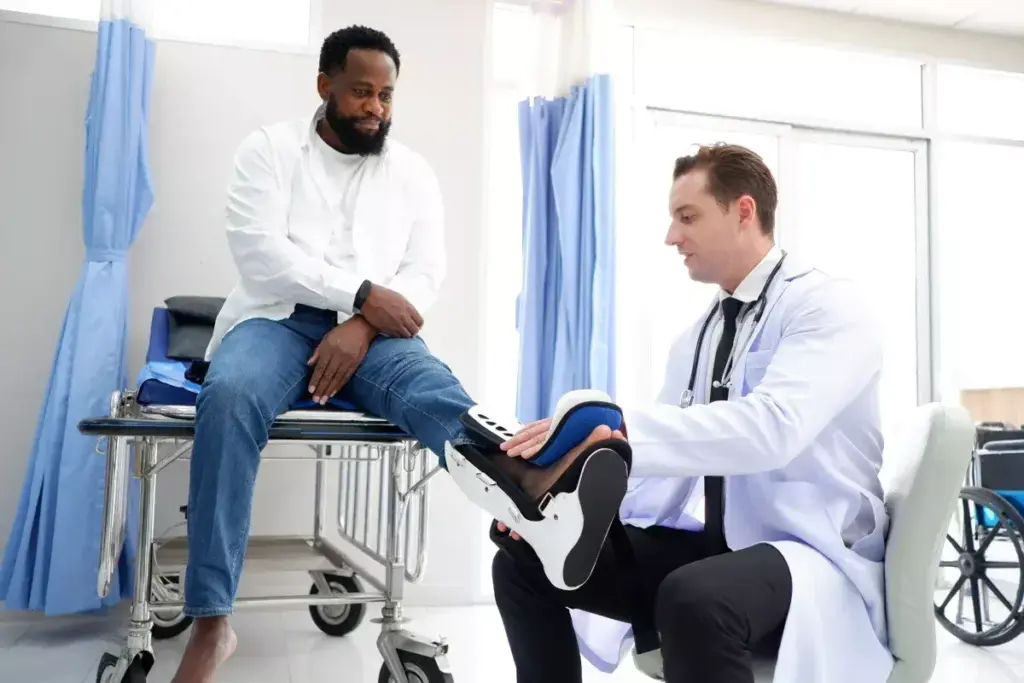Skin Cancer Screening: Early Detection, Methods, and Risk Factors
Skin cancer screening helps detect abnormal skin changes early, improving treatment outcomes and reducing the risk of spread. It is a preventive procedure designed to identify suspicious moles, spots, or lesions before symptoms develop. Early detection increases survival rates and allows for less invasive treatments.
Screening is especially important for high-risk individuals, including those with fair skin, a history of sunburns or skin cancer, many or atypical moles, frequent sun exposure, or tanning bed usage. Patients should share personal and family medical histories, recent skin changes, and current medications during appointments.
Skin cancer screening methods include self-examination using the ABCDE rule, dermatologist clinical examinations, dermoscopy such as digital mole mapping, and biopsy if a lesion appears suspicious.
Liv Hospital offers advanced skin cancer screening using AI-based dermoscopy, digital mole mapping, and high-resolution imaging. International patients benefit from English-speaking staff, global accreditations, travel assistance, and personalized care.
Screening results may show normal findings, which require routine follow-ups, while suspicious lesions may need biopsy or ongoing monitoring. Common patient questions involve screening frequency, comfort of the procedure, insurance coverage, and how to perform proper self-examinations.
What is Skin Cancer Screening?
Skin cancer screening is a preventive procedure in which a healthcare professional carefully examines your skin for early signs of cancerous or precancerous lesions. Detecting abnormal moles, spots, or lesions at this stage”often before symptoms arise”allows for early intervention and improves treatment outcomes.
The Purpose of Screening
The primary goal of skin cancer screening is early detection. Finding cancers”especially melanoma”at an early stage significantly improves the success rate of treatment and often allows for less invasive procedures. A full-body skin exam by a specialist is the most effective way to identify subtle changes that may signal early cancer.
Differentiating Screening from Diagnosis
Screening is a preventive step for people who do not yet show symptoms. If a suspicious lesion is discovered during screening, diagnosis follows. This usually involves a skin biopsy to confirm whether cancer is present.
Why is Early Detection of Skin Cancer Crucial?
Improving Treatment Outcomes
Cancers detected early, especially melanomas, have a much higher survival rate. In early stages, they can often be removed completely through minor procedures.
Reducing the Risk of Metastasis
If not detected early, skin cancer”especially melanoma”can spread to other areas of the body. Regular screening lowers the risk of metastasis and supports better long-term health outcomes.
Minimally Invasive Treatment Options
Early detection opens the door for less invasive treatments, such as topical therapies, cryotherapy, or simple excision”avoiding the need for more aggressive approaches.
Who Should Get Screened for Skin Cancer?
High-Risk Individuals
- People with fair skin, light eyes, or a history of sunburns
- Those with a family or personal history of skin cancer
- Individuals with many or atypical moles
- People who use tanning beds or have frequent sun exposure
Age Recommendations for Screening
While skin checks for cancer are essential at any age, dermatologists recommend beginning annual screenings in your 20s or 30s”especially for those at high risk. After age 50, annual or biannual exams are advised.
Understanding Your Personal Risk Factors
Your doctor will assess genetics, sun exposure habits, immune system status, and other health conditions to personalize your screening plan.
Types of Skin Cancer Screening Methods
Skin Cancer Self-Exam (ABCDE Method)
You can perform monthly skin cancer self-exams using the ABCDE rule:
- A “ Asymmetry
- B “ Border irregularity
- C “ Color variation
- D “ Diameter over 6mm
- E “ Evolving in size, shape, or color
This method helps you monitor your moles and report changes to your doctor early.
Clinical Skin Exam
A clinical skin exam for skin cancer is conducted by a dermatologist who inspects your body from head to toe, often using specialized lighting and magnification tools.
Dermoscopy (Mole Mapping)
This advanced method uses a dermatoscope to evaluate pigmented lesions. Mole mapping allows detailed tracking of moles over time.
Biopsy: When is it Necessary?
If a suspicious lesion is identified, your doctor may perform a skin biopsy. This involves removing a small sample for laboratory analysis to confirm or rule out cancer.
Preparing for Your Skin Cancer Screening Appointment
What Information to Share with Your Doctor
- Past history of skin cancer or abnormal moles
- Family history of melanoma or other skin conditions
- Any new, changing, or bleeding lesions
- Medications and medical conditions that may affect your skin
Questions to Ask Your Dermatologist
- What signs should I watch for at home?
- How often should I schedule follow-up exams?
- Should any moles be removed preventively?
Why International Patients Choose Turkey for Healthcare
High Standards and Accreditations in Turkish Hospitals
Turkey has become a global hub for medical tourism, offering world-class dermatological services in JCI-accredited hospitals with English-speaking staff and advanced technology.
Liv Hospital’s Expertise in Dermatology
A comprehensive health check-up is a thorough medical evaluation that includes physical exams, lab tests, and screenings to assess your overall health and detect potential issues early.
Experienced Dermatologists Specializing in Skin Cancer Detection
At Liv Hospital, our board-certified dermatologists are trained in early skin cancer detection, using the latest techniques to ensure accurate assessments.
Comprehensive Care Tailored for International Visitors
- From travel assistance to multilingual support, we provide seamless care for international patients seeking reliable and efficient skin screening.
- From travel assistance to multilingual support, we provide seamless car efor iternational patients
The Skin Cancer Screening Process at Liv Hospital
Initial Consultation and Risk Assessment
Your screening begins with a detailed risk profile assessment, covering your medical history, lifestyle, and skin type.
The Examination Procedure
Our dermatologists conduct a full body skin exam, inspecting moles, lesions, and freckles using both visual inspection and dermoscopy.
Utilizing Advanced Screening Tools
We employ digital mole mapping, AI-assisted dermoscopy, and high-resolution imaging to track and analyze suspicious spots with precision.
Understanding Your Screening Results
Normal Findings vs. Suspicious Lesions
Normal results will show no signs of cancer. If suspicious lesions are found, your doctor will recommend a biopsy or frequent monitoring.
Next Steps After Screening: Follow-up and Monitoring
If you are at risk or have a history of abnormal findings, regular dermatology skin checks will be scheduled for close observation.
What Happens if Skin Cancer is Suspected?
A biopsy is conducted. If cancer is confirmed, you’ll receive a personalized treatment plan that may include surgical removal, topical therapy, or further imaging.
*The Liv Hospital Editorial Board contributed to this content. *This information is for educational purposes only. Please consult your doctor for diagnosis and treatment. This page does not provide details on medicinal health care at Liv Hospital.
Protect your skin, protect your future. Schedule your skin cancer check up at Liv Hospital today and take a proactive step toward lasting health.
* Liv Hospital Editorial Board has contributed to the publication of this content .
* Contents of this page is for informational purposes only. Please consult your doctor for diagnosis and treatment. The content of this page does not include information on medicinal health care at Liv Hospital .
For more information about our academic and training initiatives, visit Liv Hospital Academy
Frequently Asked Questions
What is a skin cancer screening?
It is a preventive exam where a dermatologist checks your skin for early signs of cancerous or precancerous lesions.
How often should I get screened for skin cancer?
Most adults benefit from an annual exam, but high risk individuals may need checkups every six months.
What are the warning signs I should watch for?
Changes in size, shape, or color of moles, new growths, non healing sores, and lesions that itch or bleed.
What is the ABCDE method?
It is a self exam guide that evaluates moles based on asymmetry, border irregularity, color variation, diameter over 6 mm, and evolving changes.
Does a skin cancer screening hurt?
No. A screening is a visual examination and is completely painless.
When is a biopsy needed?
A biopsy is recommended if a mole or lesion looks suspicious or shows rapid changes over time.
Who is at higher risk for skin cancer?
People with fair skin, frequent sun exposure, tanning bed use, many moles, or a family history of melanoma.
What happens if my screening results are normal?
You will be advised to continue routine annual checks and regular self exams at home.
What happens if something suspicious is found?
Your dermatologist may schedule a biopsy or closer follow up using digital mole mapping or dermoscopy.
Does Liv Hospital offer advanced skin screening?
Yes. Liv Hospital uses AI assisted dermoscopy, digital mole mapping, and high resolution imaging for early and accurate detection.










